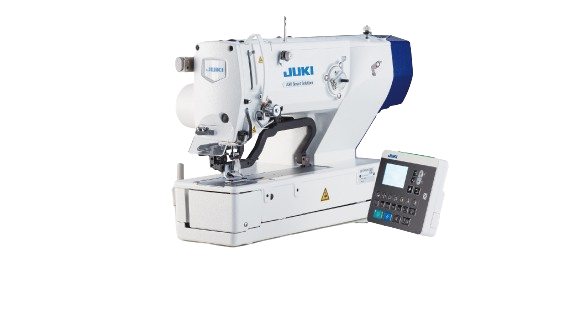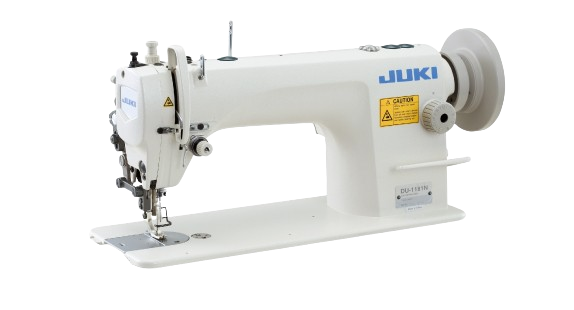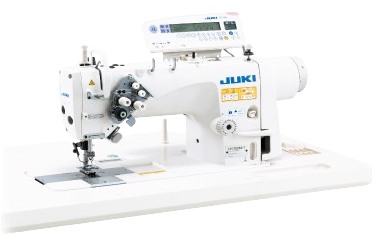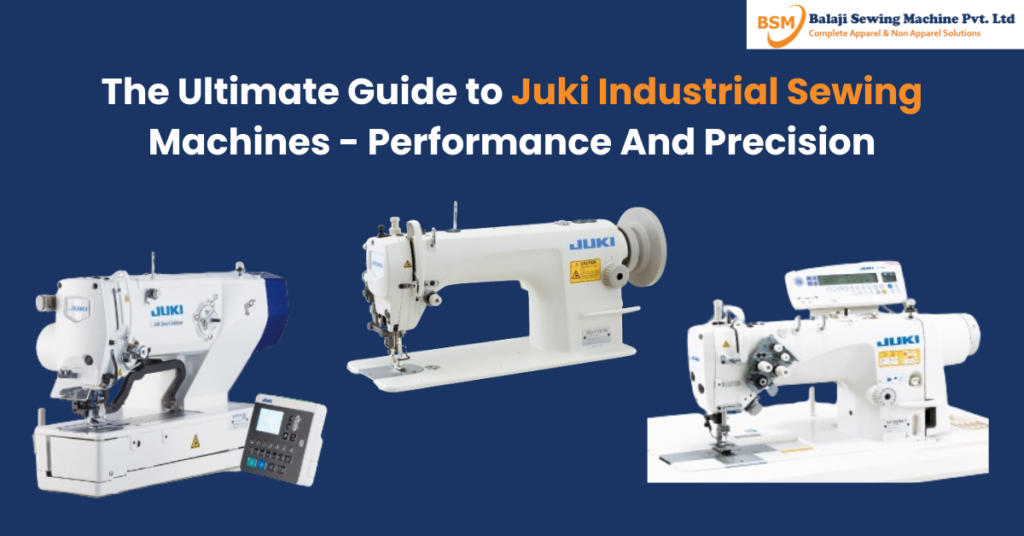Industrial sewing machines play a vital role in manufacturing, offering unparalleled performance and precision for various applications. Among the leading brands in the market, Juki stands out for its commitment to quality, reliability, and innovation. Enhance this sewing experience with an exclusive online collection of industrial sewing machines, Discover a carefully chosen assortment of top-quality industrial machines from leading brands to meet your sewing requirements. Let us explore the top picks for the best Juki sewing machines, highlighting their key features, benefits, and applications.
What is an Industrial Sewing Machine
An industrial sewing machine is a heavy-duty machine designed for commercial use in factories and production facilities. Unlike domestic sewing machines, industrial machines are built to handle high-volume sewing tasks, such as stitching garments, upholstery, and heavy fabrics. They feature powerful motors, high-speed stitching capabilities, and durable construction to withstand continuous use in demanding environments.
Industrial sewing machines are made to operate faster to achieve greater productivity, mainly when producing large quantities of goods. Modern technology is installed in high-quality industrial sewing machines to ensure consistent production of better-quality clothing. When different labor-saving and deskilling devices that automate and standardize manual operations are attached, quality and productivity can be further improved.
How to Set Up Industrial Sewing Machine
Properly setting up an industrial sewing machine is essential for smooth and efficient operation. Here’s a step-by-step guide on how to set up an industrial sewing machine:
Choose the Right Location:
– Select a sturdy table or workbench with ample space for the sewing machine and your materials.
– Ensure the area is well-lit and ventilated for comfortable working conditions.
Assemble the Machine:
– Place the sewing machine on the table or workbench, ensuring it is stable and securely positioned.
– Attach the machine head to the table using the appropriate mounting hardware provided by the manufacturer.
Prepare the Bobbin:
– Wind a bobbin with the desired thread and insert it into the bobbin case according to the machine’s instructions.
– Ensure the bobbin is inserted correctly and the thread is properly threaded through the tension mechanism.
Thread the Machine:
– Thread the upper thread through the machine’s thread guides, tension disks, and needle bar, following the threading diagram provided by the manufacturer.
– Use the thread cutter or scissors to trim any excess thread.
Adjust Thread Tension:
– Set the thread tension according to the fabric you will be sewing. For guidance on adjusting thread tension, refer to the machine’s manual.
Install the Needle:
– Choose the appropriate needle size and type for your fabric and insert it into the needle bar, ensuring it is securely tightened.
Attach the Presser Foot:
– Select the appropriate presser foot for your sewing project and attach it to the presser bar using the presser foot screw.
Check Machine Settings:
– Ensure that the machine is set to the correct stitch length, width (if applicable), and stitch pattern for your project.
– Adjust the machine settings as needed using the machine’s controls.
Clean and Maintain:
– After use, clean the machine by removing lint and dust from the feed dogs, bobbin case, and needle area.
– Regularly oil and lubricate the machine as per the manufacturer’s instructions to ensure smooth operation and longevity.
How to Use an Industrial Sewing Machine
An industrial sewing machine requires proper understanding and technique to ensure efficient operation and quality stitching. Here’s a step-by-step guide on how to use an industrial sewing machine:
Familiarize Yourself with the Machine:
Before starting, familiarize yourself with the different parts of the sewing machine, including the needle, presser foot, feed dog, bobbin, and thread tension mechanism.
Prepare the Machine:
Ensure the machine is properly threaded with the appropriate thread for your fabric.Wind the bobbin and insert it into the bobbin case, following the machine’s instructions. Adjust the thread tension according to the fabric you are using.
Set Up the Fabric:
Place the fabric under the presser foot, ensuring the edges are aligned.Lower the presser foot to hold the fabric in place.
Select the Stitch:
Use the machine’s controls to select the appropriate stitch pattern and length for your project.
Start Sewing:
Press the foot pedal gently to start the machine. The machine will begin stitching according to the selected stitch pattern. Guide the fabric evenly through the machine, keeping it aligned with the desired seam allowance.
Where to Buy Industrial Sewing Machines
When buying Juki Industrial sewing machines, selecting Balaji Sewing Machines as your supplier offers numerous advantages. With a solid reputation in the industry, Balaji Sewing Machines provides access to high-quality equipment and comprehensive support throughout the machine’s entire lifecycle.The Juki industrial sewing machines price offer smooth, quick sewing solutions that work well with various materials and patterns.
Trusted Reputation:
With years of experience in the industry, Balaji Sewing Machines has established itself as a reliable and trusted supplier.
Quality Products:
Balaji Sewing Machines offers top-of-the-line industrial sewing machines known for their durability, efficiency, and performance.
Comprehensive Support:
They provide comprehensive support throughout the machine’s lifecycle, including installation, training, maintenance, and repairs.
Competitive Pricing:
Balaji Sewing Machines offers competitive pricing and deals, ensuring customers get the best value for their investment.
Here are the top picks for Juki industrial sewing machines:
JUKI LBH-1790AN Computerized Industrial Sewing Machine:

– This computerized industrial sewing machine offers advanced features and precision stitching for various sewing applications.
– It has a high-speed direct-drive motor, automatic thread trimmer, and programmable stitch patterns for efficient and accurate sewing.
– The LBH-1790AN is ideal for sewing heavy-duty materials such as denim, leather, and canvas, making it suitable for garment manufacturing, upholstery, and other industrial sewing tasks.
JUKI DU1181-1 Industrial Sewing Machine:

– The JUKI DU1181-1 is a reliable and durable industrial sewing machine for medium to heavy-duty sewing applications.
– It features a single-needle lockstitch design with a walking foot mechanism, making it easy to sew thick and layered fabrics.
– With its adjustable stitch length and presser foot pressure, the DU1181-1 offers versatility and precision for various sewing projects, including upholstery, leatherwork, and canvas sewing.
JUKI 3528A Industrial Sewing Machine:

– The JUKI 3528A is a high-performance industrial sewing machine renowned for its speed, durability, and efficiency.
– It has a triple-feed mechanism, needle feed, walking foot, and drop feed, ensuring smooth and even stitching on a wide range of materials.
– With its heavy-duty construction and advanced features, the 3528A is suitable for sewing leather, upholstery, heavy fabrics, and other challenging materials commonly used in industrial sewing applications.
Conclusion
To remain competitive in the textile industry, one must utilize modern technology to improve sustainability, productivity, and quality. Balaji Sewing Machines offers Juki industrial sewing machines, the epitome of sewing innovation and a reliable option for companies that want to improve their textile production capacities.
Choosing Balaji Sewing Machines as your partner guarantees that your investment in Juki technology will take your company to new heights. You will have access to unmatched expertise, a large selection of machines, and exceptional after-sales support. With Juki industrial sewing machines, you can embrace the future of textile production and see the impact that precision engineering can have on your bottom line.

